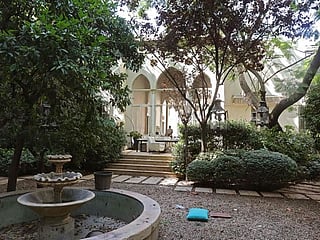59% of UAE parents prefer distance learning for first academic term 2020/21
There are nearly 1.1 million students registered across private, public schools in UAE

Abu Dhabi: A recent government poll has revealed that the majority of students’ parents prefer distance learning as opposed to studying in school for the first term of the academic year 2020/21.
An online survey carried out by the Ministry of Education discovered that out of 28,171 participants, 59 per cent of respondents said they would rather choose distance learning for their children, while 41 per cent said they preferred the method of children being physically present in schools.
Out of the 844 comments made on the ministry’s Twitter account, the majority of parents agreed that although face-to-face interaction was more efficient and has more benefits than online learning, the need for a healthy and safe environment outweighed any doubts that distance learning should continue – at least for the first academic term.
Earlier this month, the Abu Dhabi Department of Education and Knowledge (ADEK) had announced that parents with children enrolled in private schools were allowed to opt for distance learning during the upcoming school term.
According to the latest statistics provided by the ministry, there are currently 1,099,331 students enrolled at 619 public schools and 643 private schools across the UAE. The new academic year has been scheduled start on August 30.
Parents took to Twitter to discuss the pros and cons of distance learning, and unanimously agreed that schools should emphasise on following precautionary health measures, such as the use of face masks and social distancing, in addition to raising the level of awareness among staff, teachers and students on washing their hands.
“It is true that it is easier and more comfortable for students to continue distance learning, especially for seniors, but there are a lot of problems with it, such as websites not working, network disruptions during exams and cheating,” wrote a concerned parent.
Another parent, Umm Khalid, said: “I believe that learning in school is better, and I understand that students may have their reservations, and would be willing to continue classes online. But we need to have faith that precautionary measures will be followed strictly, and inshallah, things will get better.”
On the ministry’s social media account, Najjat supported the idea of distance learning and tweeted: “Why is this decision hard, the matter is easy. COVID-19 has not ended and we should not put our lives in jeopardy because some people think it is necessary to go to school ... We tried distance learning and it has been a success, which indicates development in the school system. What is the problem of resuming distance learning for the rest of the year?”
The updated back-to-school guidelines states that full online-learning will be available for the entirety of the first term, subject to prior coordination with the school. While schools have been allowed to offer models of schooling with full or partial distance learning to students, the new rules and precautions will strictly apply at schools that opt for in-class learning models.
The guidelines also include mandatory COVID-19 testing for all staff including teachers, and students above the age of 12. Daily temperature checks will be done for all staff and students, the number of students in each class would be limited to 15, and all students above the age of six must wear masks while at school.
The 800ADEK hotline was also set up for parents and school staff who want to report any complaints or concerns.








